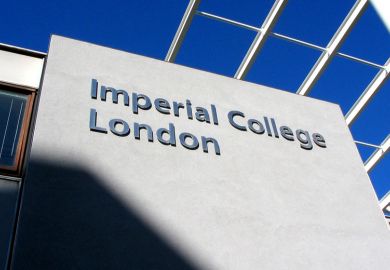The European Society for Medical Oncology said that the proposed changes – being considered by the European Union – would put a “halt” to many public health research efforts.
The changes, designed to address data privacy concerns in the digital age, would add a “nearly impossible administrative burden” to cancer research, which could “irreversibly slow down” the pace of cancer research, it added.
The ESMO is the latest body to raise concerns over the potential effects of the proposed data protection regulation on medical research. So far this year the Wellcome Trust, the Medical Research Council and the European University Association have publicly spelled out the problems the changes would cause for science.
The ESMO has suggested that the wording of the regulation be amended to include a “one-time consent” for personal information used in research, instead of the “explicit and specific” consent listed in the proposal.
This would save scientists from having to contact each patient every time they wanted to use their data for research. It would also give them access to data and stored research samples after patients have died, which would be impossible under the proposed system.
The ESMO’s suggested changes would ensure that patients knew what they were consenting to and adds safeguards so that they could withdraw their consent at any time. A similar “one-time consent” is included in the EU’s new clinical trials regulations adopted earlier this year, where it allows researchers to use data for further projects after a trial is over, the ESMO explained.
The president of the ESMO, Rolf Stahel, said: “Our proposal achieves the correct balance between the right to privacy and the right to health. It actually ‘empowers’ patients, allowing them to choose whether to donate their data and tissue for public health research, whose ultimate goal is to find cures.”
Paolo Casali, ESMO public policy committee chair and author of an ESMO position paper on the matter, said: “We are calling upon the European Union to assure that all forms of public health research will survive and be able to function within the safeguards that are in place, without adding the nearly impossible administrative burden of re-consenting each patient, every time, for every single project, which could irreversibly slow down the accelerated pace that cancer research has gained over the past decades.”




